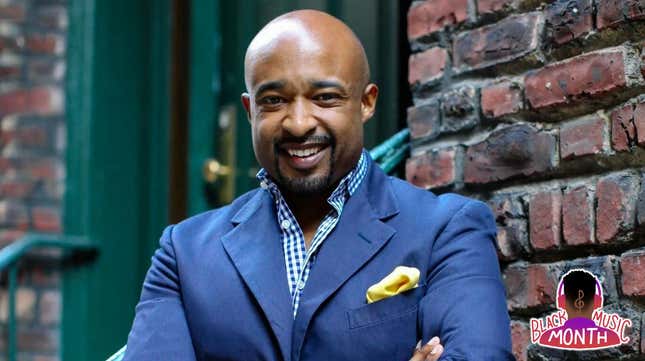
Throughout the course of the year, artificial intelligence has been one of the most talked about subjects—especially in music.
On any given day, when you scroll through social media, you’ll hear a song that was created through AI. Sometimes, it’ll be funny. Other times, it’s cringy. Occasionally, they can be annoying. However you view or consume content that is influenced by AI, it’s something that has undoubtedly affected the way we experience the world and listen to music.
Mike Muse, who hosts the award-winning The Mike Muse Show, in addition to serving as a co-host on Sway in the Morning, is also a NextGen Tech Policy Fellow at Google that is helping to usher in the next generation of political architects in crafting public policy surrounding AI data privacy, the MetaVerse, and technology governance.
In short, he knows how AI has had an impact on the music industry, for the best and worst.
How exactly do people use AI to recreate music?
Although many people have an idea of what AI is, they don’t know exactly how it works, especially when it comes to music.
“With computer software and programming, you’re able to manipulate voices,” Muse explained to The Root. “You’re able to take someone’s voice and mimic their inflection and pitch and recreate it for new music or a speech. It’s no different than we see with deep fake images. Now it’s just adding a voice and auto-audible to it.”
When did it become a national conversation?
For many people, it can be tough to keep up with trends like AI. It seems that out of nowhere it was a buzzword that was being used in nearly every industry, from technology to music, even in academia, No different than the NFT “boom” a few years ago. But when did it start to catch on and be noticed by people not directly involved in the tech world?
It started a few months ago when Chat GPT, an artificial intelligence chatbot developed by OpenAI, started to become popular among the masses.
“Once the conversation around Chat GPT got amplified, we began to start seeing other use cases of AI when it comes to, for example, that picture with the Pope,” Muse said. “That was a photo that was created by way of AI.”
Shortly after, the reproduction of music started, recreating the voices of popular artists like Drake and The Weeknd.
What are the pros and cons of AI in the music industry?
Although when people hear AI and music in the same sentence, they automatically associate it with something negative, such as the viral clips of people mimicking the voices of Jay-Z, Kanye West, and Rihanna. But despite its reputation, it’s still an ally of the music industry in many ways.
“It’s used for artificial strategic marketing to help break in new artists,” said Muse. “It helps find a demographic that would be interested in liking their music based upon the data around other artists that they sound similar to.”
You know when you’re in your DSP of choice (Apple Music, Spotify, etc.), and they suggest, “If you like artist A, then you will enjoy artist B as well”? That’s AI! So the next time your streaming service of choice puts you onto an artist that you weren’t previously aware of, thank technology. But that doesn’t mean AI can’t be an enemy of the music industry at times also.
“It has an impact on an artist’s copyright and intellectual property,” Muse said. “As a result of new music being recreated that isn’t from the original owner, you are cutting out and infringing on those creators’ copyright.”
It’s no different than when an artist covers or remakes an original song and does not attribute the creator of it and doesn’t allow them to participate in the making (or remaking) of it.
Why is AI being used so much to recreate the music created by Black artists?
While I don’t doubt that people are using AI to recreate music created by other artists, it seems that more times than not, it’s mimicking art created by Black singers and rappers. Why is that?
The simple answer is, hip-hop is the most popular genre in the world. No other genre is streamed or downloaded more than hip-hop.
“If their music is popular and their music is trending and charting, it’s just an easier use case to use music from artists that can be heard almost anywhere,” said Muse.
Essentially, hip-hop is an easy target. I compare it to people wanting to be like Michael Jordan. During the 1990s, MJ was the most talked about and successful athlete in American sports. And as a result, every kid who had an interest in hoops wanted to be like Mike.

